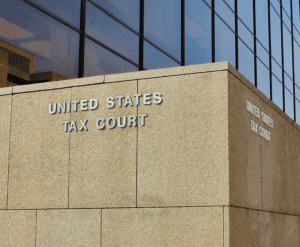
Coronavirus: IRS Extending 2020 Tax Filings and Payment Deadline
As announced previously, due to the Coronavirus Pandemic (COVID-19), the Internal Revenue Service (IRS) (as well as many states) extending the April 15, 2020 deadline for the PAYMENT of taxpayer’s Tax Year 2019 taxes due. Now, the IRS is also extending the April 15, 2020 deadline for the FILING of taxpayer’s Tax Year 2019 taxes due. This Coronavirus Pandemic Tax Payment Extension will only extend the payment of the taxes.
Thus, all taxpayers will be required to file (and pay) their Tax Year 2019 Tax Returns by July 15, 2020.
The IRS has stated that this Coronavirus Pandemic Tax Deadline Extension to July 15, 2020 will apply to all taxpayers. Thus, Tax Day is being moved to July 15, 2020.
Generally, all taxes due must be paid to the IRS by the April 15 deadline even when an extension to file is granted. As an aside, it is best to always attempt to file your taxes as early as possible, especially if you owe money. In most cases, the IRS will have 10 years to collect the debt due after it is assessed by the IRS, so the sooner someone files their tax return, the sooner that time limitation on the IRS’s ability to challenge the return can start running.
While the Coronavirus New Tax Day (July 15, 2020) is helpful, it is important to realize that the IRS also has a few alternative programs that can assist taxpayers who are suffering from undue hardship due to the COVID-19/Coronavirus Pandemic and cannot pay their taxes in full or at all.
Currently Not Collectible
Currently Not Collectible (CNC) is an IRS program for those have no income. This program should be available, even with the New Tax Day (July 15, 2020). By filing CNC with the IRS as soon as possible about a taxpayer’s financial situation and obtaining CNC status, the taxpayer’s tax debt remains (and penalties and interest will continue to accrue), but the IRS will agree to not actively attempt to collect against the taxpayer until the financial circumstances change. The CNC program is an excellent program for taxpayers who do not have any income. The CNC program is open to people affected by the COVID-19/Coronavirus Pandemic. The CNC program will permit a taxpayer to have the opportunity to get back on their feet.
IRS Installment Agreements
A second option for taxpayers is an installment agreement. The Installment Agreements Program is open to people affected by the COVID-19/Coronavirus Pandemic. This IRS Installment Agreements Program allows the taxpayer the opportunity to pay the taxes over time based upon a reasonable amount. There are several methods in which the IRS will determine the amount a taxpayer can pay under the Installment Agreements Program. The Installment Agreements payments will be based upon the amount due and the taxpayer’s current financial status.
Finally, there is the IRS’s Offer in Compromise Program. The Offer in Compromise Program allows individuals to compromise the entire amount for a one-time payment. However, if there is only one tax year due, it is usually unlikely that the Offer in Compromise Program will be an option for those taxpayers.

While these programs and this IRS extension is helpful, we understand that the entire tax process is complicated. The New Tax Day (July 15, 2020) hopefully will help many taxpayers. If taxpayers fail to promptly address issues raised by the IRS, it may be impossible for a tax lawyer to undo all the damage in the future. Contact Robb Longman or one of our other IRS tax attorneys today at (301) 291-5027 to schedule a phone consultation. Our experienced IRS tax lawyers, based in Bethesda, Maryland, Rockville, Maryland, and Washington, DC are prepared to help you resolve your tax issues (whether related to Coronavirus Pandemic (COVID-19) or not) the as efficiently and discreetly as possible. Mr. Longman works with his clients to devise strategies to help them minimize their taxes in their business or personal transactions. Additionally, Mr. Longman is a regular speaker on presentations at the Section of Taxation of the American Bar Association.

This Post Has 0 Comments